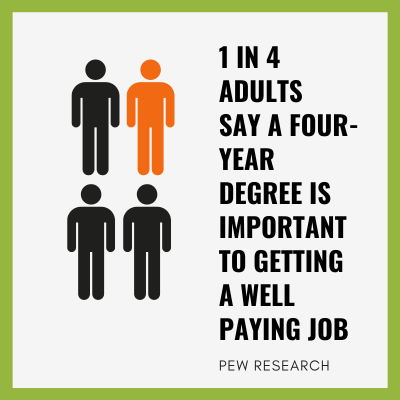It takes a lot of work for a job seeker to make themselves known to employers. Job seekers use various hiring platforms to search and apply for job opportunities. The overwhelming demand to keep track of all the platforms, customized cover letters, resumes, and contacts, can hinder engaging with employers in the most effective and beneficial outcome.
Job seeking is a process and equipping oneself with tools of engagement for every step along the way is helpful. Engagement keeps the job seeker present in the employer’s consideration from the application, interview, to consideration for eventual hire. So how does a job seeker meaningfully engage in their job search?
As a job seeker there is a lot that accompanies the question “How?”. How do I find the job openings that match my interests and needs? How do I manage the job openings I have responded to? How do I introduce myself to employers? How do I successfully navigate an interview? How do I ask my potential employer’s the right questions?
The answer is, Jobspeaker. All of these “How’s” have created the services a platform such as Jobspeaker can provide. Jobspeaker has layers of engagement opportunities from job listings to interview tools and everything in-between. As a job seeker, here is how Jobspeaker can create the ultimate engagement between you and your potential employers.
A Meaningful Job search to Engage the Job Seeker
Jobspeaker is created to address the unique and meaningful aspects of empowering individual goals for students and job seekers at every stage of their job search. Jobspeaker responds to work-force placement needs that are applicable to an individual’s skills, interests, experience, Degrees, and location.
Job seekers and students are introduced to jobs within their very own areas of skill and passion. A meaningful and catered job-search engine creates an environment for job seekers that allows them to respond in a more efficient “eye on the prize” mentality that can at times be watered down in the absence of interest. Keeping job seeker’s engaged through their interests creates a systematic and purposeful journey for the job seeker.
Once the job seeker is engaged, their abilities to further retain tactics and tools for captivating employers can begin. Jobspeaker’s platform includes services of Guidance, Organization, Teaching and Connection that stand as building blocks for the job seeker’s professional endeavors and future employer interactions.
Guidance and Connection for Engaging the Employer
Jobspeaker offers a list of inter-connecting tools and services that create a job seeker’s most efficient hub of information and opportunity. It is a system that easily manages the complexity of all the career events, resumes, cover letters, applications, interviews, and more — all in one place.
A five step guide creates the points of action job seekers will embark on, beginning at their original approach, all the way to their final job offer and decision. These five steps call for specific fulfillments on the job seeker’s part. Jobspeaker guides the user in tips and tricks for not only “what to do next” but “how to do it best.” These fulfillment’s entail detailing a personalized profile including skills, uploading resumes and other relative documents, following through on events or activities, and partnering with their school if applicable. This prerequisite and on going act of preparing a job seeker profile creates a complete and impressive representation of the individual as a candidate – one of the steps to standing out in the eyes of an employer.
With an outstanding amount of examples to display the job seeker’s employability, Jobspeaker begins the point of connection by introducing job opportunities specific to the profile created. The job seeker has the ability to directly reach the applications that lead to interview possibilities for that desired gig. When it comes to getting notice through and beyond the applications, Jobspeaker lends tutorials and tips that cover the topics many job seeker’s have yet to incorporate in their application and interview preparedness. From interview guidance to in-depth advice on best articulating personal strengths, a new level of insight and confidence is available for the job seeker that utilizes the system’s potential in order to unlock their own.
To see a simple statement featuring two of Jobspeaker’s ingredients for Employer Engagement without revealing the secret recipe, read on.
Steps of Engagement
- The Introduction
Jobspeaker uses advanced pairing tactics to place relative and detailed jobs into the hands of the job seeker, engaging them with future employers.
- Practices for Standing Out
Jobspeaker provides knowledge and easily accessible preparation tools to teach a job seeker the captivating essentials of maintaining an employer’s interest. Whether it’s having the right work-study, paperwork prepared, or being able to efficiently answer common and uncommon interview questions, the product of being a Jobspeaker user is a well-rounded candidate trained to engage employers and exceptionally stand out.
If you want to be the best in your job search game, go ahead and give Jobspeaker a try. It’s a great job search platform for engaged job seekers. For more information visit https://jobspeaker.com/jobseekers


